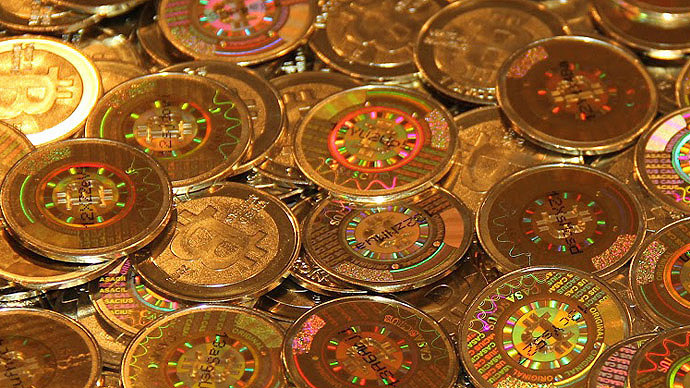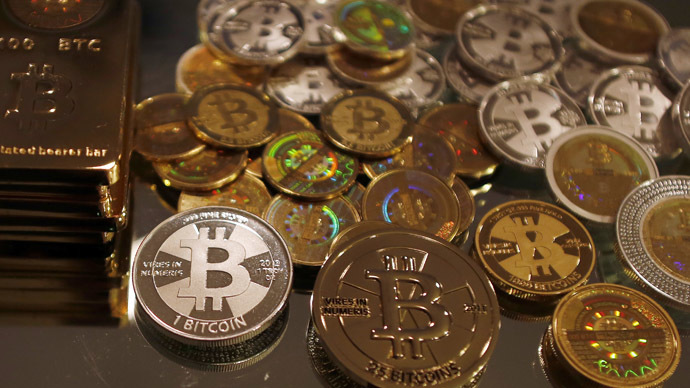Bitcoin bubbles but will it burst?

After more than quadrupling in one month, many question whether bubble trouble is looming for bitcoin.
Like it or loathe it, bitcoin
is an entity of extremes. Not merely its value oscillations but
also the vehemence with which its acolytes support it and indeed
its detractors seek to destroy it. BTC supporters are ecstatic
with a vertical leap from barely 215 bucks to over 1000 dollars
during November alone. Prices never move in a pure straight line;
rather they tend to ebb and flow like tides and emerging
currencies are often very volatile. Indeed, bitcoin has been more
volatile than most during its 4-year existence. Moreover markets
can remain irrationally priced longer than contrary investors can
remain solvent.
Readers vested with a dose of realism will recall great historical bubbles like Tulipmania, where Holland became obsessed with flower bulbs imported from Turkey. Vast inflation in blooms sadly led to bust.
Therefore the massively balkanized world of bitcoin opinion will likely remain charged. In fact, bitcoin may yet have another collapse at which stage obituaries will be written once again (as they were in 2013, 2011, 2010 and...Well, BTC was only born in 2009).
Two factors have fuelled this remarkable month for cryptocurrency. First, the US Senate held bitcoin hearings, which gave voice to concerns but overall provided the currency with a certain seal of approval.
Meanwhile in China, bitcoin has gained a cult status. Herein lies both the excitement and the problem. For propelling bitcoin from a little over 10 dollars to 1000 in 11 months has been facilitated by scarcity. Even at recent giddy heights, the total value of all bitcoins is roughly 13 billion US dollars. It’s a handy sum not to be sniffed at, but in currency terms bitcoin remains a micro-minnow. By comparison the USA has 1.22 trillion dollars in circulation.
Large national currencies held by millions of citizens are well distributed (i.e. even the mega rich only control a modest proportion of the total notes/coins in issue) and therefore hard to manipulate significantly. With bitcoin it’s different. BTC still appears to be tightly controlled: the top 100 owners of the currency hold some 20 percent of the total circulation, leaving a relatively modest “free float” of currency available for purchase.

With even a relatively modest imbalance of aggressive buyers, any asset which is relatively ‘illiquid’ (i.e. hard to acquire in significant quantities) can rise quickly. Meanwhile, the underlying value of bitcoin has been ostensibly underpinned by the complex maths required to “mine” new BTC as the necessary processing power becomes increasingly expensive.
It doesn’t take a renaissance genius to notice that the difference between a mining ‘floor’ of say 150 dollars and a market price of 1,000 is rather wide. Market bubbles cool at best or simply burst at worst. Parallel to the remarkable rise of BTC, the NASDAQ stock index recently broke through 4000 for the first time since the heady internet bubble at the turn of the millennium. Here there may be a message for BTC. Cryptocurrency prices may rocket upwards for weeks to come, or they might dive within days. Likewise in 2000, internet stocks were going stratospheric with investors fixated on a dotcom future. However, when it became apparent that the infant web was a poor proxy for commerce, the dotcom bubble burst spectacularly.
Dotcom values collapsed but the internet itself didn’t disappear. Rather the web expanded exponentially. More than a decade later we are reliant upon Alibaba, Facebook, Pinterest, Twitter, Yandex, YouTube et al and the tech-heavy NASDAQ index has recovered.
Where does this leave bitcoin? Yes, it probably is overvalued. A day of reckoning is likely on the horizon when the realization dawns that bitcoin has become an engine of speculation as opposed to a stable unit of commerce: the difference between being a commodity and a real currency. However, whether bitcoin will ultimately be the cryptocurrency of the future is to miss the point. Think of it this way: in 1998 web usage was dominated by Netscape, whereas in 2013 few web users have even heard of it. Nevertheless, browsers remain the epicenter of internet access. Likewise, bitcoin might well be a bubble which burns out, but it has entrenched forever the concept of cryptocurrency. In a world where governments cannot be trusted to look after our money, bitcoin, bubbles or not, is doing us all a favor, charting the brave new world of money.
The statements, views and opinions expressed in this column are solely those of the author and do not necessarily represent those of RT.
The statements, views and opinions expressed in this column are solely those of the author and do not necessarily represent those of RT.













